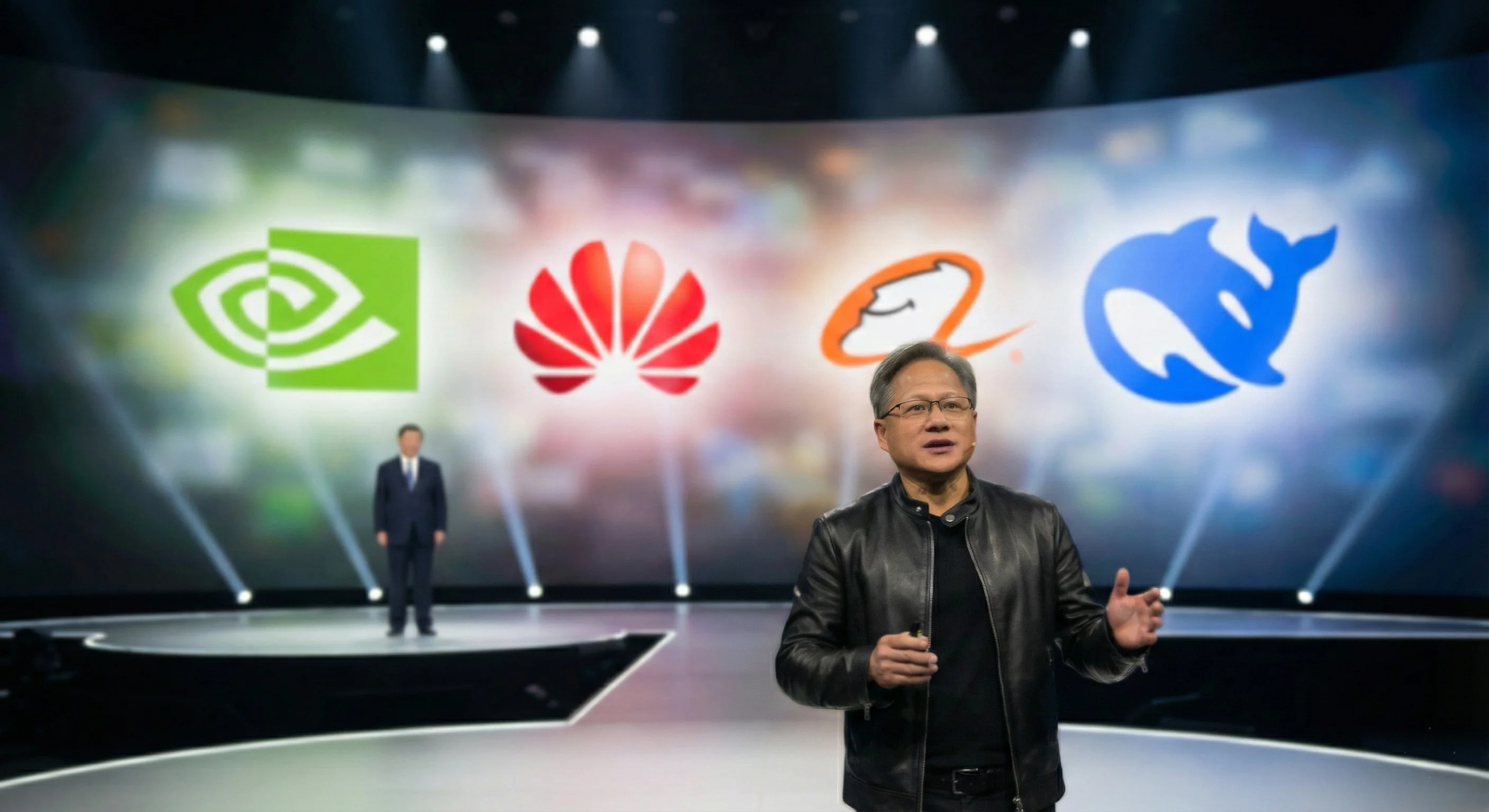China's AI Chip Challenge: Can It Overtake Nvidia?
For years, Nvidia has reigned supreme in the world of AI chips. But a new contender is emerging: China. With massive investments and a determination to achieve technological independence, China is rapidly developing its own AI chip capabilities. Can they truly challenge Nvidia's dominance? Let's dive in.
The Rise of China's AI Ambitions
China's ambition to become a global tech leader is no secret. President Xi Jinping has emphasized "high-quality development," pouring resources into industries from renewable energy to artificial intelligence. This push is fueled, in part, by a desire to reduce reliance on Western technology, especially in light of trade tensions and export restrictions.
Jensen Huang, Nvidia's CEO, has even acknowledged China's progress, stating they are only "nanoseconds behind" the US in chip development. He also cautioned that restricting trade with China could give them an edge in the AI race.
Key Players in the Chinese AI Chip Market
Several Chinese companies are stepping up to challenge Nvidia. Here are a few notable examples:
- Huawei: This tech giant has unveiled its most powerful chips ever and a three-year plan to compete with Nvidia in the AI market. They're also making their designs and programs available to encourage domestic adoption.
- Alibaba: The e-commerce giant announced a new chip that reportedly matches the performance of Nvidia's H20 semiconductors while using less energy.
- DeepSeek: This startup made waves by launching an AI model rivaling OpenAI's ChatGPT, claiming it cost significantly less to train and used fewer high-end chips.
- Cambricon Technologies: This Beijing-based company has seen its stock value skyrocket as investors anticipate its benefit from China's push for local chip production.
- MetaX: Supplying advanced chips to major players like state-owned China Unicom.
How China is Closing the Gap
Several factors contribute to China's rapid progress in AI chip development:
- Massive Investment: The Chinese government is pouring billions of dollars into its semiconductor industry.
- Talent Pool: China boasts a vast and hardworking pool of engineers and researchers.
- Intense Competition: A vibrant and competitive domestic market drives innovation.
- Strategic Focus: Companies are concentrating on cluster architectures and alternative production methods to overcome limitations.
Challenges and Criticisms
Despite the impressive progress, China's AI chip industry faces challenges:
- Lack of Transparency: Some experts caution that claims made by Chinese chipmakers should be viewed critically due to limited publicly available data and testing benchmarks.
- Performance Gaps: While Chinese chips perform well in predictive AI, they may lag in complex analytics.
- User-Friendliness: Some critics argue that Chinese chips can be less user-friendly than Western alternatives.
- State-Led Approach: A heavy focus on shared goals can sometimes stifle disruptive innovation.
The Impact of US Export Restrictions
US export restrictions, designed to limit China's access to advanced AI chips, have had unintended consequences. While aiming to slow China's progress, they've instead accelerated its push for self-sufficiency.
Nvidia's market share in China's advanced chip market plummeted from 95% to zero due to these restrictions. This has created an opportunity for Chinese competitors to build their own ecosystems, potentially leading to divergent technology standards and parallel innovation tracks.
The Future of AI Chip Competition
The competition between Nvidia and Chinese AI chip developers is heating up. While Nvidia currently holds a significant lead, China's determination and rapid progress cannot be ignored. The future of the AI chip market will likely be shaped by:
- Geopolitical Factors: Trade tensions and export restrictions will continue to play a crucial role.
- Technological Innovation: The race to develop more powerful and efficient chips will intensify.
- Ecosystem Development: Building robust software and hardware ecosystems will be essential for success.
As Jensen Huang himself urged, the US needs to compete for its survival in the face of China's tech advancements.
The Bottom Line
China's challenge to Nvidia's AI chip dominance is real and growing. While Nvidia's current lead is substantial, China's massive investments, vast talent pool, and strategic focus on self-sufficiency make it a formidable competitor. The coming years will be crucial in determining whether China can truly overtake Nvidia and reshape the global AI landscape.

